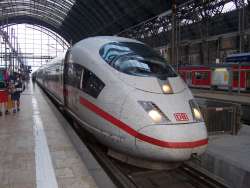On the 12th April 2011 the TRAN Committee convened at the European Parliament to exchange views on the recast of the first railway package.
The committee was presented with a study by Steer Davies Gleave institute on “Unbundling and Regulatory Bodies in the context of the recast of the 1st railway package”.
The study was requested by the TRAN committee to gather a comprehensive overview of different models of regulation in force across member states and the existing cases of vertical separation compared to cases of vertical integration.
TYPOLOGY AND STRUCTURE OF REGULATORY BODIES IN THE EU RAILWAY SECTOR
- Effectiveness of RBs across the EU varies significantly.
- Clear case for strengthening existing legislation to better guarantee the independence of RBs. Also need adequate resources & ability to act quickly and effectively.
- A need for RBs to function independently of government, particularly where the latter has a direct interest in national RUs or IM.
- Future policy options should ensure that RBs are properly resourced and have appropriate powers, recognising that the need for regulatory intervention and oversight may vary between MSs.
THE IMPACT OF THE SEPARATION BETWEEN INFRASTRUCTURE MANAGEMENT AND TRANSPORT OPERATIONS IN THE EU-RAILWAY SECTOR
- Despite structural changes, established relationships between the IM and incumbent RU remain in place in some MSs.
- Regulation alone is unlikely to guarantee non-discrimination in access.
- More rapid market opening is likely to depend on greater separation of the IM and RUs than has been achieved in many MSs to date.
- Issues, such as the ability of a dominant RU to unduly influence capacity allocation and other decisions through co-location with the IM should also be addressed.
- Future mechanisms could assess the various policy options including independence of operational decision making as distinct from legal separation.
- Costs of vertical separation may be significant if complex contractual frameworks are required e.g. for timetable co-ordination, payment of liquidated damages for delays etc.
- Observed trends in costs, fares and service quality can be explained by a wide range of factors and cannot be attributed only to separation.
For the complete presentation – click here.


No responses yet